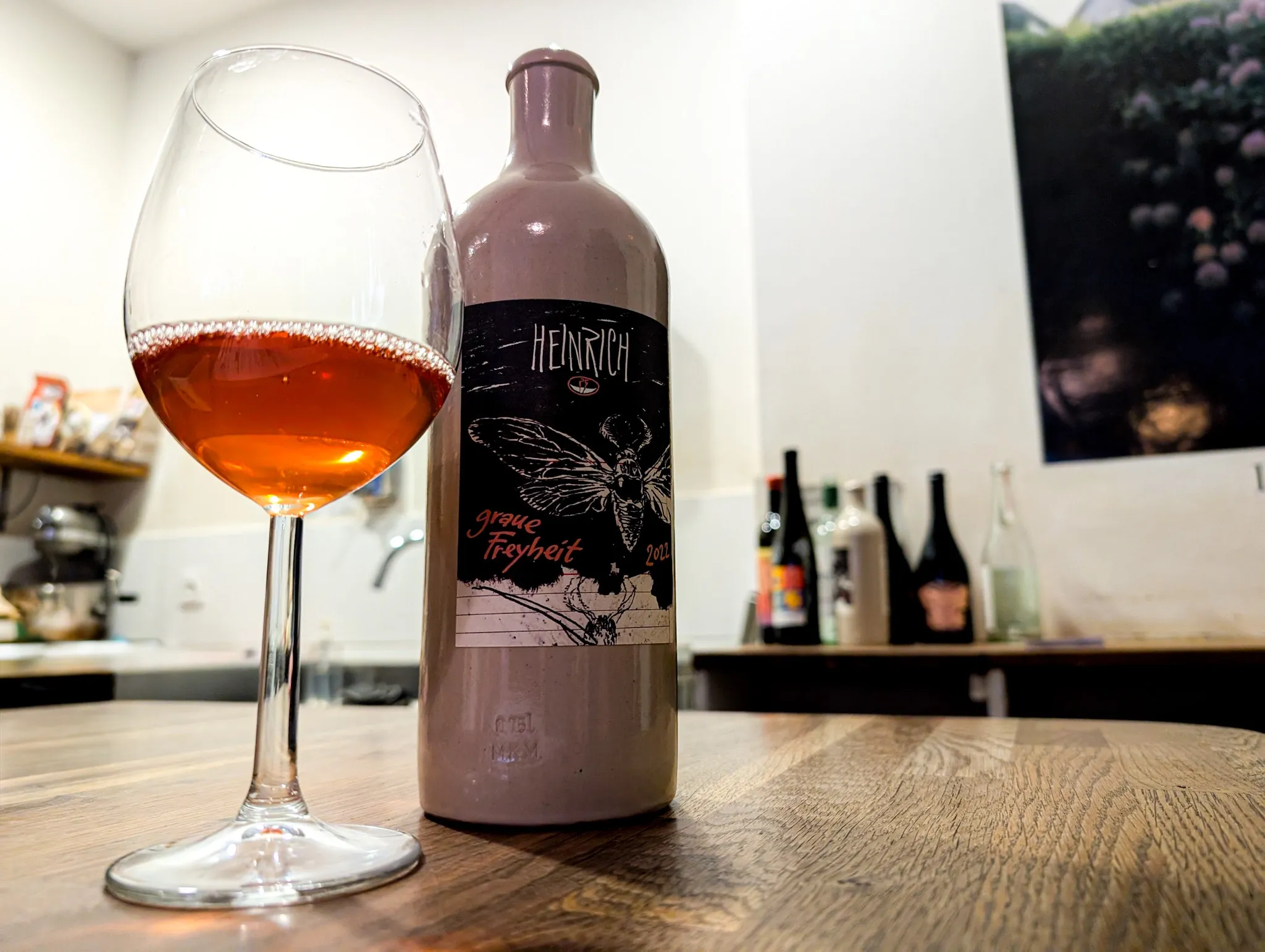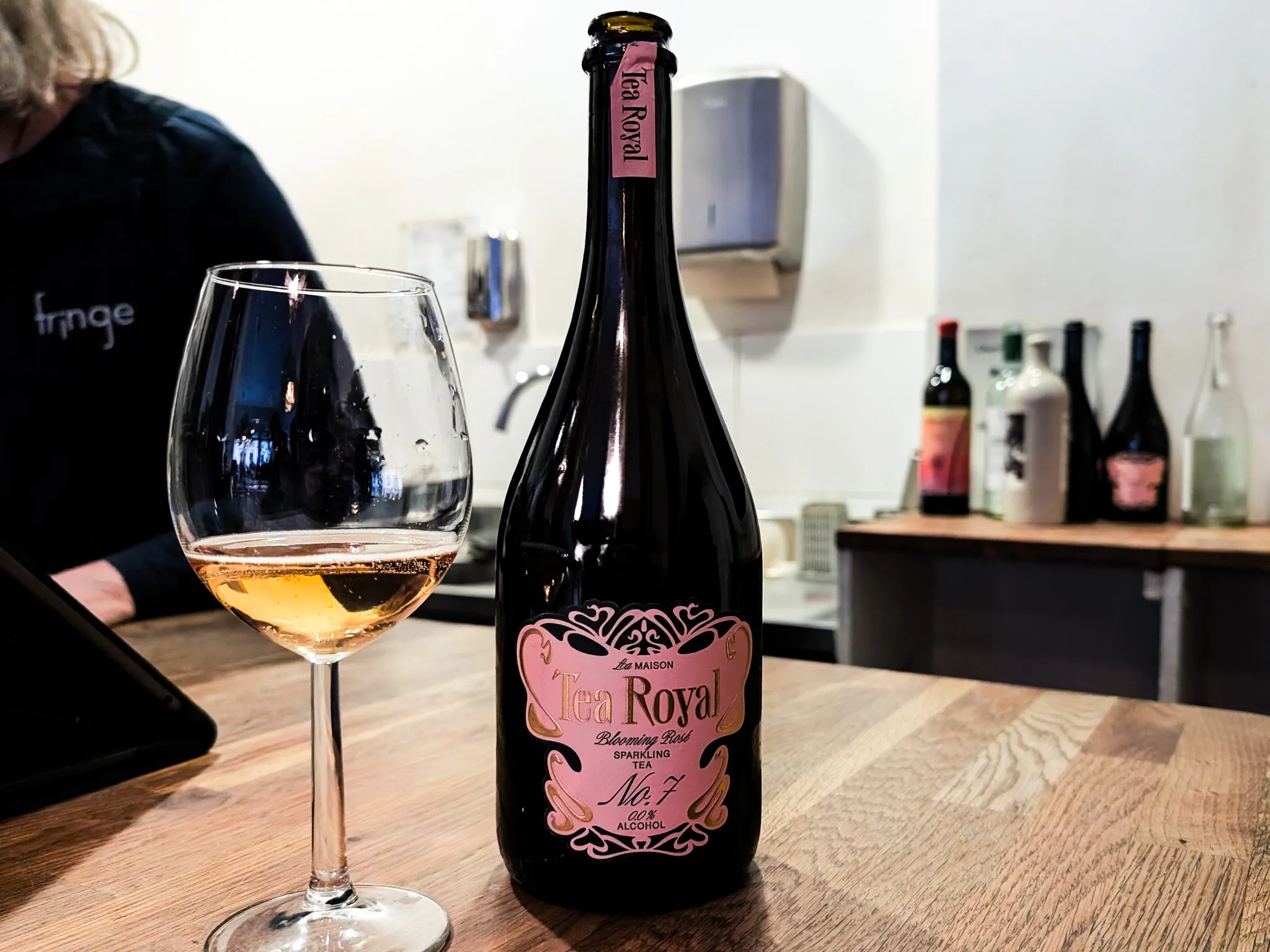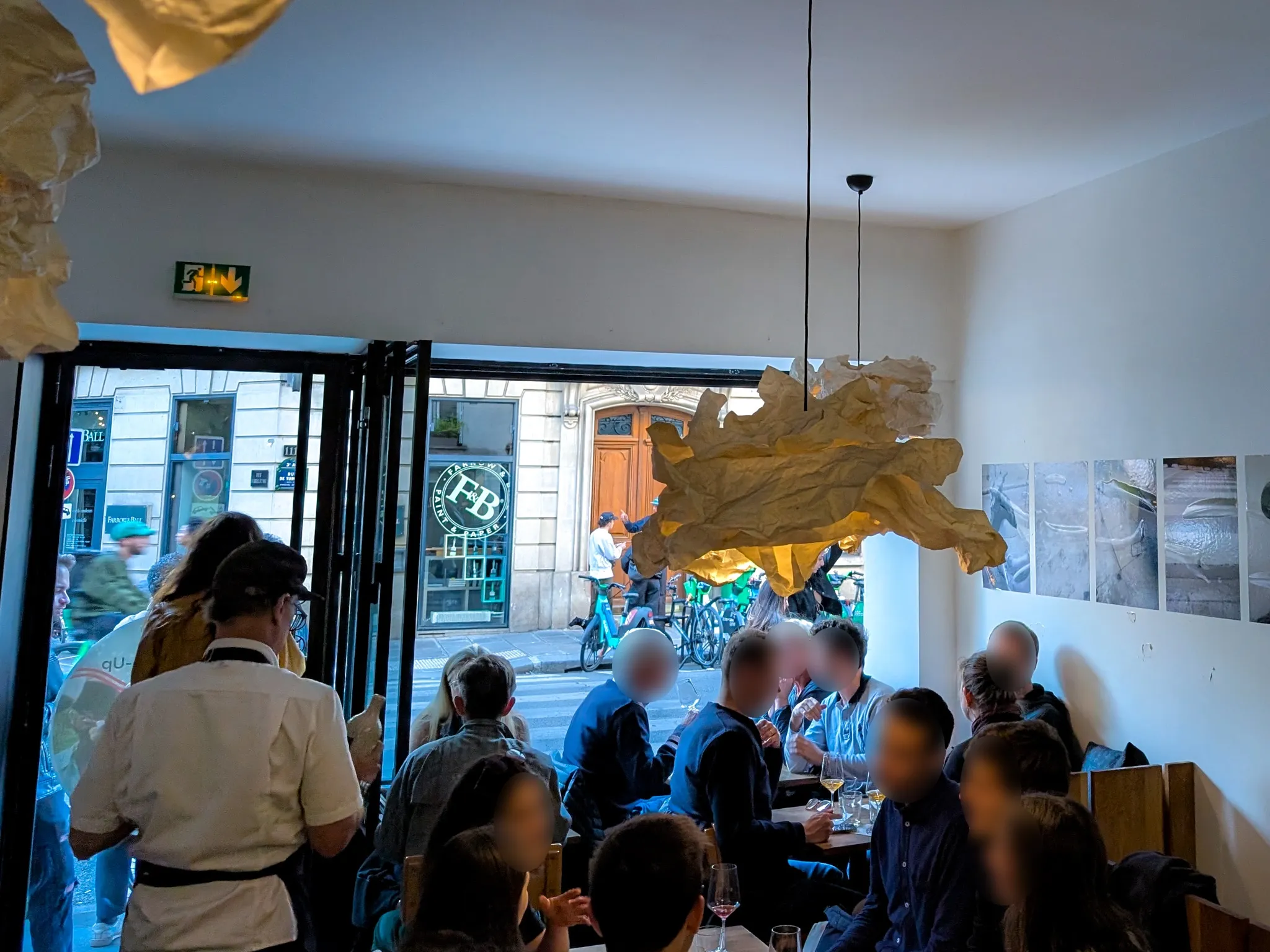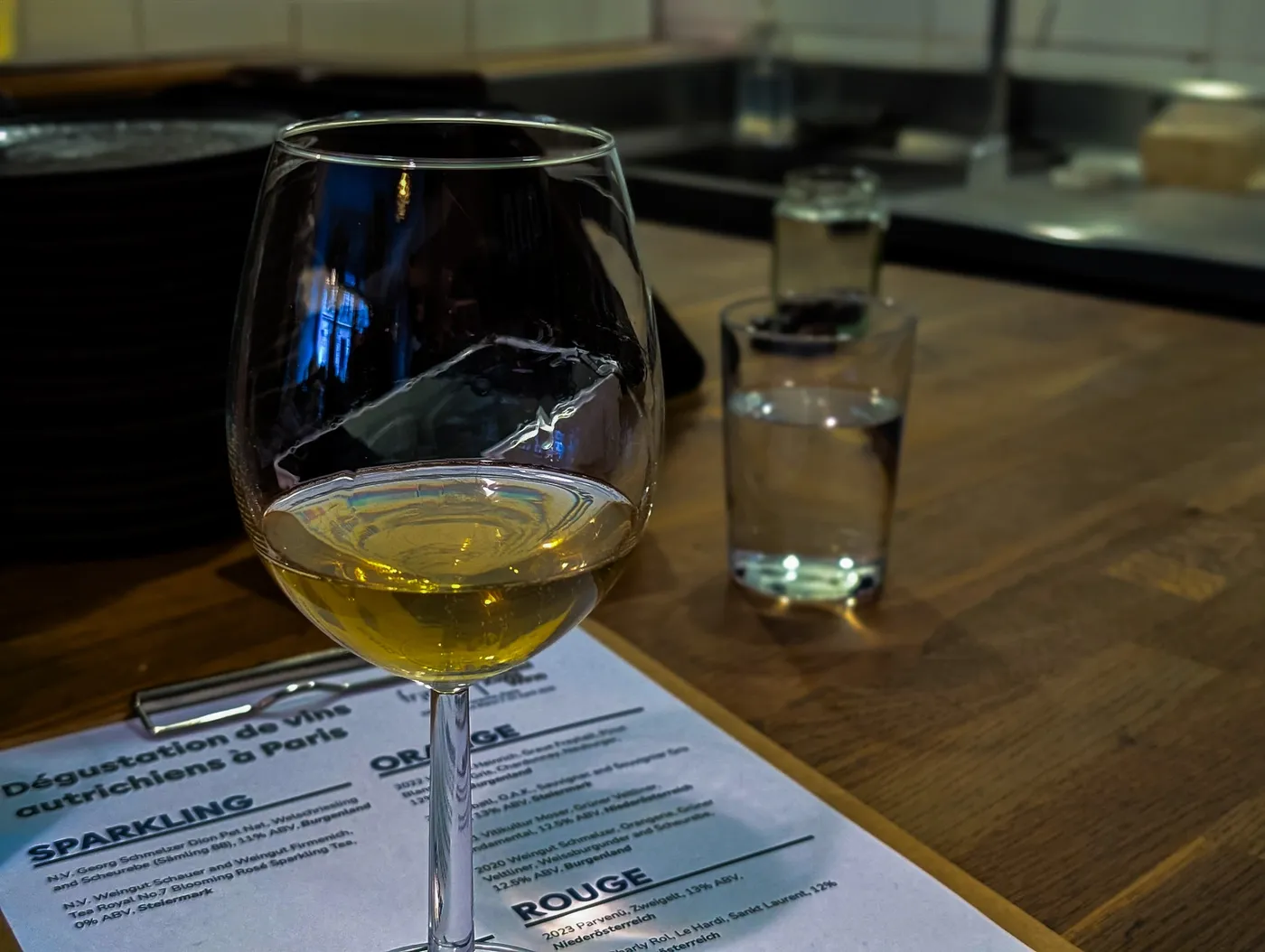The Future of Austrian Wine: Innovation and Sustainability
According to the latest report from the Austrian Wine Marketing Board, Austria’s wine exports have unfortunately declined by 6% to €233.3 million, with export volumes down 1.7% to 64.2 million liters. These figures reflect the mounting challenges of the global wine market. On top of this, Austrian producers have faced a string of hardships, with frost and flood damage culminating in the country’s smallest harvest in 14 years.
Yet, in the face of adversity, Austria’s wine industry continues to distinguish itself as a leader in organic viticulture and innovation. Today, 9,901 hectares or 22% of Austria’s total vineyard area are certified organic, underscoring the nation’s pioneering status in the global organic wine movement. One novel example of this progressive approach is the use of banana peel compost by winemaker Chris Sciacca, who published his results last year while studying at the University of Applied Sciences in Krems, Austria. His experimental trials have shown that this practice significantly increases potassium availability in the soil, with treated plots averaging 171 mg/kg compared to 108 mg/kg in the control. As a result, vines grown with compost displayed more vigorous growth, with thicker canopies and stems, as detailed in Chris’s recent research.
With a winemaking heritage stretching back over 2,000 years, Austria has firmly established itself as a dynamic and internationally respected wine producer. Today’s generation of young Austrian winemakers inherit not only technical expertise and business acumen from their families, but also a deep respect for tradition. Many are dedicated to preserving time-honored practices such as fermenting in amphorae and granite vessels while embracing new grape varieties and modern technologies. This harmonious blend of tradition and innovation is evident in the remarkable diversity and quality of Austrian wines today.
In summary, while recent years have brought significant challenges, Austria’s wine industry remains a beacon of quality and sustainability, setting new standards for organic production and forward-thinking winemaking on the world stage.

The Unique Universe of Austrian Natural Wine
In recent years, natural wines have grown in popularity around the world, helping to lower the average age of wine drinkers and making wine more accessible and enjoyable in everyday life. But what exactly is natural wine, and why is it at the center of the current wine trend?
Natural wines are produced from grapes grown using organic or biodynamic farming methods, with minimal human intervention and no added chemicals or additives. Central to natural wine is the use of eco-friendly viticulture and traditional production techniques. This approach not only minimizes soil contamination and environmental impact but is also believed to offer certain health benefits, as it reduces the use of sulfites compounds that, when consumed in excess, can sometimes cause headaches. However, it remains unclear whether sulfites or histamines are primarily responsible for such reactions. Since most wines contain only small amounts of sulfites, well below harmful thresholds, this health claim is met with some skepticism. Nevertheless, the emphasis on organic farming, the cornerstone of natural wine production has garnered widespread support.
Many Austrian winemakers are producing orange wines in the traditional Friulian or Slovenian style, utilizing wild yeast fermentation, foregoing strict temperature control, and minimizing sulfur additions. Some also employ extended skin contact to amplify the wine’s signature spicy character. At a recent pop-up wine bar in Paris, hosted by Chris and the Austrian Wine Marketing Board, more than 40 Austrian wineries showcased the diverse range of white grape varieties is used for Austrian natural wines, including Grüner Veltliner, Riesling, Zweigelt and Blaufrankish. One particular standout was Nord & Sud’s Gemaischter Schatz, a non-vintage wine from 100% Grüner Veltliner. The grapes from the first vintage underwent a four-week skin maceration and have been aged for one whole year in 300-liter barrels. The 2022 grapes have been left macerating for three weeks, then vinified quickly and blended with the older wine. The result is a wine with an alluring dark tobacco note and a dense tannic structure, which captivated visitors with its distinctive personality.
Another intriguing wine featured at the pop-up was the 2021 Kobatl and Urbaniof FUTURE. These two wines stood out not only for its success with guests but also for its use of PIWI grape varieties. PIWI is a German term for hybrid grape varieties bred to be highly resistant to fungal diseases, with names like Blütenmuskateller, Muscatis, and Subinier Greek for whites, and Rattai and Rosler for reds. PIWI’s greatest advantage lies in the vineyard: while traditional varieties such as Riesling may require eight to twelve applications of copper and sulfur per season, PIWI vines typically need only three to four treatments, resulting in reduced fuel consumption and a lower environmental footprint.

At the pop-up, natural wine producers from various regions of Austria including Styria, Burgenland, and Niederösterreich, came together to showcase their white, red, and orange wines. The event highlighted the diversity and innovation within Austria’s natural wine scene, and demonstrated how natural wine continues to shape the future of wine drinking culture.

Expectations For The Future
According to the organizers, “This pop-up was a valuable opportunity to experience the quality and personality of Austrian natural wines in Paris.” The initiative not only highlighted the diverse expressions and craftsmanship of Austrian producers but also resonated with an audience eager to explore new wine horizons.
Looking ahead, the organizers have expressed their commitment to expanding these efforts. “We plan to continue organizing Austrian natural wine pop-ups in various spaces and cities to connect with wine lovers around the world,” they stated. This ongoing strategy underscores Austria’s ambition to strengthen its presence on the international wine stage, engaging both seasoned connoisseurs and curious newcomers alike.
By bringing Austrian natural wines directly to influential markets such as Paris, these pop-up events are set to further cement Austria’s reputation for excellence and innovation in the world of natural wine.
Finally, I would like to extend my sincere gratitude to those who greatly contributed to the creation of this article: Chris Sciacca from Kapitel Zwei Wine for his enthusiastic cooperation during the interviews, Jeff Hargrove from Fringe Coffee Paris for his invaluable support in providing the venue and contributing exceptional content, and Donica Kellaway for her expert consultation and invaluable insights in the field of natural wine.
References
2. The global economic situation is proving a challenge for austrian wine exports



